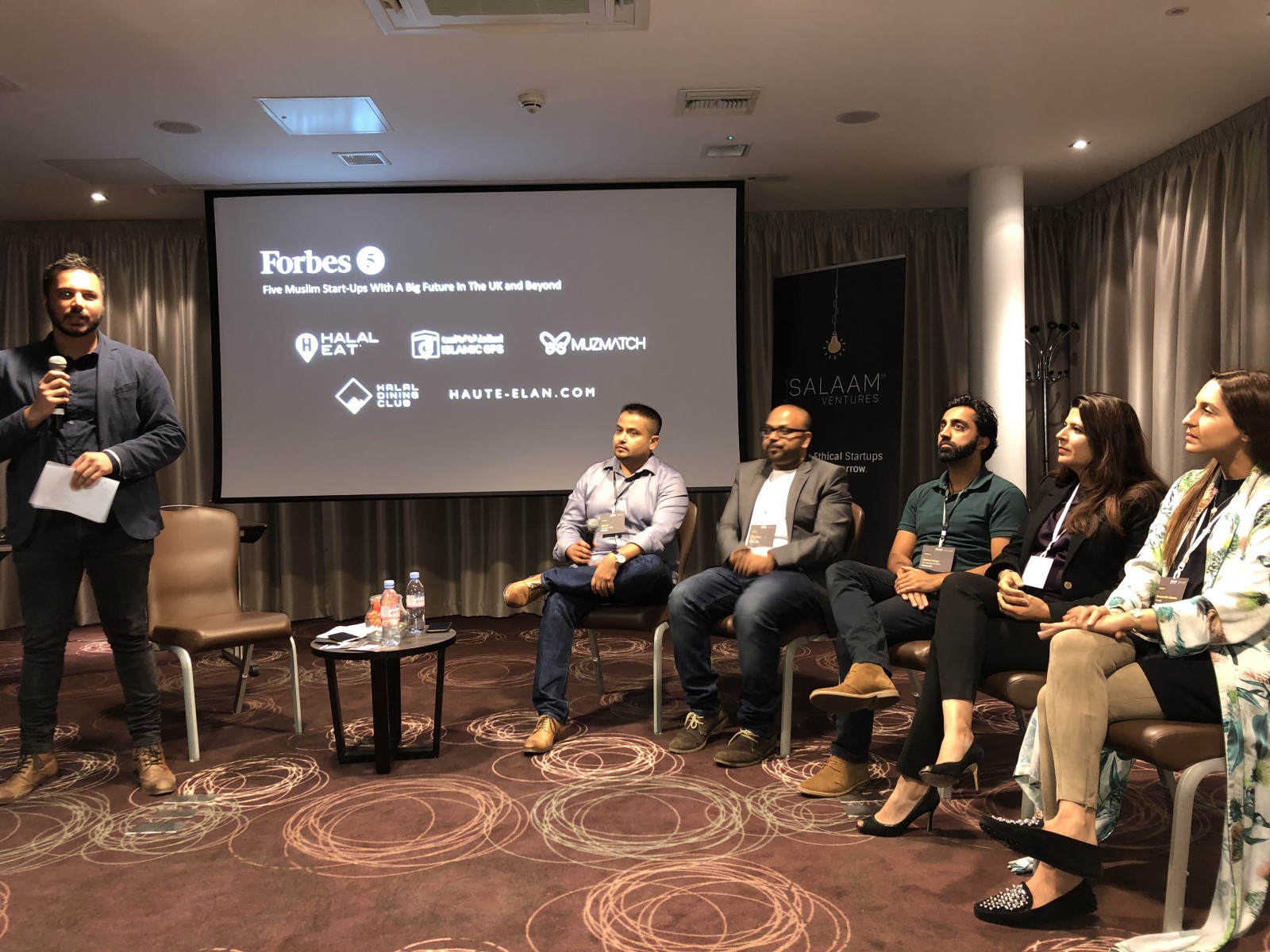We all need to support the startup ecosystem, whether it’s by helping these companies raise further rounds, mentoring and collaborating with them, or simply by being a user or customer.
We all need to support the startup ecosystem, whether it’s by helping these companies raise further rounds, mentoring and collaborating with them, or simply by being a user or customer.
Congratulations to the 5 British Startups recently featured in Forbes. The Muslim and Halal economy is exploding, with more than half of the Muslims being under 30 worldwide, there is a great technology shift and new problems to be solved. From halal food to marriage to modest fashion, all growing sectors of the global Muslim economy. Here is my quick review and opinions of the startups we saw at the event organised by Salaam Events.
- IslamicGPS — Over 50k+ downloads later, it has a growing user base. As the founding team are ‘techies’, it’s so much easier to execute on building an app and audience first, with lower burn rates, before considering monetisation. Indonesia is a big market for them.
- MuzMatch — A Y Combinator graduate company, they’ve raised $1.5 million from US investors. With over a ¼ million users and 7000+ success stories, they are doing extremely well. The key is to maintain platform integrity specific the to the Muslim faith, an ideal female/male ratio and accelerate growth by building a talented team. The app looks and works great.
- HalalEat — Exceeding their target with a successful campaign on Seedrs, they have publicly raised £100k+. As the former Marketing Director of Just Eat, I ask myself – what’s so different about Halal Eat for a Muslim consumer, is it that they properly verify Halal restaurants on a regular basis? If so, then they should shout a lot more about it as that’s a great unique selling point (USP), but also, isn’t going into halal certifications a different proposition all together? I look forward to seeing how they evolve as Abul Rob the CEO seems very passionate and has personally invested a lot of his own money.
- Halal Dining Club — I use it all the time to find halal restaurants around London. Raised a good crowd funding round and has a strong capable CEO (I may be biased as I’m acting as an advisor to them), but the bigger vision is really exciting and the noble aims of feeding more people for every booking is commendable. Based in London, Singapore, and now New York and Paris, they are expanding fast and have over 3500 halal restaurants on board.
- Haute Elan — Lovely website and great photography and product range. The question is, are there enough well-known modest fashion brands out there? Consumers love to see top brands on platforms, as it gives the platform credibility in their eyes. Too many lifestyle-based labels with small stock runs can also mean a supply issue (I ran an e-commerce site for shoes before and it was a real pain). I’m assuming they take a small percentage cut on orders so high volumes are required but the good news is that the basket size is going to be large based on what I can see from the price range.

We all need to support the startup ecosystem, whether it’s by helping these companies raise further rounds, mentoring and collaborating with them, or simply by being a user or customer.
Most investors rely on very large market sizes to realise potential returns, so it makes sense that some of these entrepreneurs have gone global from the outset. Muslims are only around 5% of the population in UK, which gives a total muslim market size of around 3.3 million — basically a market that’s not large enough in the eyes of most professional investors. However, going global before drilling down on the problem/solution in your own backyard can also be a risky strategy. I know marketplaces well, and generally what works best is aiming the firepower at the right region or city first, really nailing the ‘product market fit’, then rolling it out from there to the next city, and so on.
When it comes to funding, the first port of call for founders is to reach out to investors within their own community, but, unfortunately, many Muslim founders claim this process is too long winded and potential Muslim investors still have a largely very traditional and non-startup mindset — preferring to stick to the usual tangible investment opportunities like property. So it can really be a struggle. It’s a shame such great startups have to look elsewhere for funding. Maybe we need to work harder on raising more awareness amongst key investors and building better circles and hosting more founder events. We need those who have already been in the trenches and got through to the other side to step forward and help, both in terms of wisdom and expertise.
by Ash Ali

Entrepreneur | Start-up Founder & Speaker| Growth Hacker | 1st Marketing Director JUST EAT | Angel Investor | New Book “The Unfair Advantage” out soon!
(Source)





